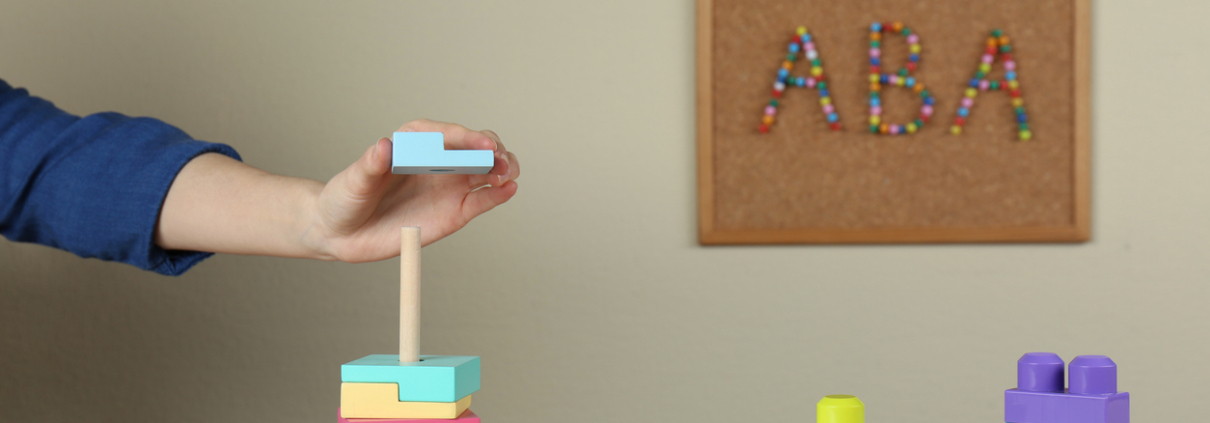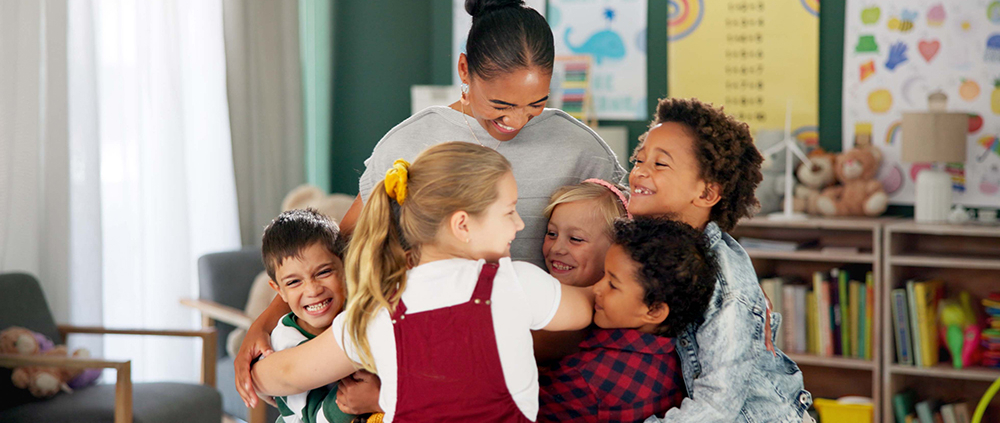How In-Home and In-Clinic ABA Therapy Work Together for Stronger Outcomes
The Power of Environment in ABA Therapy
Every child learns differently, and the environment plays a key role in how they absorb new skills. At Behavior TLC, we’ve seen how combining in-home and in-clinic ABA therapy creates stronger, more sustainable results for children with autism. By blending comfort and structure, children gain consistency across all areas of their lives.
ABA therapy, or Applied Behavior Analysis, focuses on understanding behavior patterns and using evidence-based strategies to encourage positive change. According to the Centers for Disease Control and Prevention (CDC), ABA is one of the most effective interventions for children with autism, improving communication, socialization, and adaptive behaviors.
Benefits of In-Home ABA Therapy
In-home ABA therapy takes place in the child’s natural environment — where daily routines unfold. This setting provides the ideal opportunity to teach real-world skills such as brushing teeth, following directions, sharing toys, or managing transitions. Parents also gain firsthand experience applying ABA techniques, which strengthens learning outside therapy hours.
A study published by the National Institutes of Health (NIH) found that parent participation significantly improves outcomes in children receiving ABA therapy (source). When parents learn strategies for prompting, reinforcing, and shaping behavior, progress accelerates. That’s why Behavior TLC emphasizes family involvement from day one.
Benefits of In-Clinic ABA Therapy
In-clinic therapy offers a structured, distraction-free space where children can work with multiple therapists and peers. The clinic environment provides consistency, specialized equipment, and opportunities for social skill-building. Here, children practice cooperation, communication, and emotional regulation in small group settings — preparing them for school and community life.
At Behavior TLC, our clinic-based program is overseen by Board Certified Behavior Analysts (BCBAs) who design individualized treatment plans and monitor progress through data analysis. This scientific, measurable approach ensures therapy remains effective, adaptive, and goal-oriented.
How Combining Both Settings Builds Lasting Skills
Blending in-home and in-clinic sessions allows children to generalize skills — applying what they’ve learned in one setting to another. A child might learn to request help during clinic playtime and then use that same communication skill at home during dinner. This crossover strengthens understanding and confidence.
The Behavior Analyst Certification Board (BACB) emphasizes that skill generalization is a key marker of successful ABA treatment (BACB Guidance). By experiencing both structured and familiar settings, children develop flexible, adaptable behaviors that last long after therapy sessions end.
A Team Effort: Families and Therapists Working Together
At Behavior TLC, therapy isn’t just about the child — it’s about empowering the whole family. Our BCBAs collaborate with parents, teachers, and caregivers to maintain consistency and celebrate every milestone. Through ongoing communication and training, we ensure that every skill practiced in therapy continues to grow at home.
We track each child’s progress using precise data collection, helping us make informed decisions about when to adjust goals or shift focus. This data-driven approach ensures that every child receives exactly what they need at every stage of their development.
Creating Confidence for the Future
When therapy is flexible, consistent, and collaborative, children thrive. By integrating in-home comfort with in-clinic structure, we help children build confidence in all environments — from home and school to community and beyond. Families feel supported, children feel empowered, and growth happens naturally.
If you’re ready to explore how Behavior TLC can support your family through personalized ABA therapy, reach out today. Together, we can build lasting progress and brighter tomorrows.
Transforming Lives with In-Home ABA Therapy: A Personalized Approach to Autism Support
As autism spectrum disorder (ASD) diagnoses continue to rise, families seek effective, individualized interventions to support their children’s development. According to the CDC, approximately 1 in 31 children are identified with ASD. In response to this growing need, Behavior TLC offers a tailored solution: our In-Home ABA Therapy Program.
What Is In-Home ABA Therapy?
Applied Behavior Analysis (ABA) is a scientifically validated approach to understanding and improving behaviors. Our In-Home ABA Therapy Program brings this evidence-based treatment directly into your home, allowing for a comfortable and familiar setting where children can thrive.
This program is designed to address a wide range of developmental challenges, including:
- Enhancing communication skills
- Improving social interactions
- Developing daily living skills
- Reducing challenging behaviors
By integrating therapy into the child’s natural environment, we ensure that interventions are relevant and seamlessly incorporated into daily routines.
Why Choose In-Home ABA Therapy?
Opting for in-home therapy offers several distinct advantages:
1. Individualized Attention
Each therapy session is tailored to the child’s unique needs, ensuring a personalized approach that maximizes progress.
2. Family Involvement
Parents and caregivers play an integral role in the therapeutic process. Our program includes training and support to empower families to reinforce strategies at home.
3. Natural Environment Learning
Learning in a familiar setting promotes generalization of skills, making it easier for children to apply what they’ve learned in various contexts.
4. Convenience and Comfort
Receiving therapy at home eliminates the need for transportation and allows children to remain in a comfortable environment, reducing potential anxieties.
The Impact of ABA Therapy
Research consistently demonstrates the effectiveness of ABA therapy in improving outcomes for children with ASD. A study published in the Journal of Autism and Developmental Disorders found that children who received intensive ABA therapy showed significant improvements in IQ, language skills, and adaptive behavior CDC.
At Behavior TLC, our team of Board Certified Behavior Analysts (BCBAs) and trained therapists utilize data-driven methods to monitor progress and adjust interventions as needed, ensuring continuous growth and development.
Getting Started with Behavior TLC
Embarking on the journey of in-home ABA therapy begins with a comprehensive assessment. Our team collaborates with families to understand the child’s strengths, challenges, and goals. Based on this assessment, a customized therapy plan is developed and implemented.
We accept a variety of insurance plans and assist families in navigating the authorization process, making quality therapy accessible and manageable.
Hear from Our Families
“Behavior TLC has been a game-changer for our family. The therapists are compassionate, professional, and truly invested in our child’s success. We’ve seen remarkable progress in communication and social skills.” – A Parent of a Program Participant
“The in-home therapy model has been incredibly convenient for us. Our child is more engaged, and we feel supported every step of the way.” – A Parent of a Program Participant
Conclusion
At Behavior TLC, we are committed to providing high-quality, personalized ABA therapy that empowers children and supports families. Our In-Home ABA Therapy Program offers a flexible and effective solution for families seeking to make meaningful progress in their child’s development.
If you’re interested in learning more about our program or scheduling an assessment, please contact us today. Together, we can work towards a brighter future for your child.
How Behavior TLC Supports Families Through ABA Therapy
Raising a child with autism spectrum disorder (ASD) is a unique journey, one that comes with both challenges and triumphs. At Behavior TLC, we believe families shouldn’t have to navigate that journey alone. Our ABA therapy programs are designed not only to help children build essential skills but also to give parents and caregivers the support they need every step of the way.
Empowering Families Through Education and Collaboration
We know that parents play the most important role in their child’s growth. That’s why every program at Behavior TLC includes family collaboration. Our Board Certified Behavior Analysts (BCBAs) work closely with caregivers to explain therapy goals, demonstrate strategies, and provide actionable steps for supporting progress at home.
Parent training sessions help families feel confident using ABA principles outside of therapy. These tools make everyday activities—like mealtime, bedtime, or trips to the store—smoother and less stressful.
Tailored ABA Therapy for Every Child
No two children on the spectrum are alike, so we create individualized ABA therapy plans to match each child’s needs. Our offerings include:
- Early Intervention ABA: Support for toddlers and preschoolers to encourage communication, social skills, and developmental milestones.
- One-on-One ABA Therapy: Focused sessions targeting specific skills like language, behavior reduction, and daily living skills.
- Social Skills Groups: Small group settings that allow children to practice communication, cooperation, and friendship-building.
- Parent & Caregiver Training: Guidance that empowers families to reinforce skills and encourage positive behavior outside the clinic.
- School Collaboration: Partnering with teachers and school staff to create consistent strategies and promote academic success.
Creating a Supportive Environment
Behavior TLC is more than a therapy provider—we’re a community. Our team of BCBAs and Registered Behavior Technicians (RBTs) is passionate about helping children succeed and supporting families through every stage of their journey. We use data-driven methods to track progress and adjust plans, ensuring therapy remains effective and goal-focused.
Families often tell us that the biggest difference they see is not just in their child’s skills, but in their confidence as parents. Knowing they have a team on their side can make all the difference.
A Partner in Your Child’s Growth
ABA therapy is one of the most powerful tools available for children with autism, but its impact goes beyond the clinic walls. By working hand-in-hand with families, Behavior TLC helps children thrive and families feel supported.
If you’re ready to take the next step for your child, Behavior TLC is here to help. Schedule a consultation today and let’s create a plan that works for your family.
Back-to-School Success: How ABA Therapy Supports Transitions for Children with Autism
Back-to-School Transitions and the Power of ABA Therapy
As students head back to school, the start of a new academic year can bring a wave of changes—especially for children with autism. From new teachers and classmates to shifting routines, transitions can be overwhelming without the right support.
At Behavior TLC, we understand how important it is to prepare for these changes early and intentionally. Our ABA therapy programs are designed to help children develop the tools they need to thrive both in and out of the classroom.
Why Transitions Matter for Kids with Autism
Transitions—whether big or small—can be challenging for children on the autism spectrum. A new schedule, unfamiliar environments, or changes in expectations may trigger anxiety or behavioral struggles.
By focusing on predictability, communication, and positive reinforcement, ABA therapy can ease these stressors. Our team helps children build routines and coping skills that carry over into the school setting—supporting academic success and emotional regulation.
How ABA Therapy Supports School Readiness
Behavior TLC’s programs offer targeted strategies that promote smoother transitions into school. Here’s how:
- Visual Schedules: We help families and educators use visual schedules to create structure and reduce uncertainty.
- Social Skills Training: Group and individual sessions focus on peer interactions, sharing, turn-taking, and communication—skills crucial for school environments.
- Behavior Plans: We design proactive behavior intervention plans that anticipate challenges and reinforce positive behaviors.
- Parent Collaboration: We work with parents to practice school-like routines at home, such as preparing a backpack, following a morning routine, and managing transitions between tasks.
These tools help children feel confident and prepared, both academically and socially.
Working Together with Schools and Families
One of the most valuable parts of Behavior TLC’s approach is our collaboration with schools. When needed, our BCBAs can communicate directly with teachers and support staff to ensure strategies used in therapy are carried over into the classroom.
We also empower parents with tools and coaching to make back-to-school transitions less stressful for the whole family.
September is a Fresh Start—Let’s Make It a Strong One
The start of the school year is a great time to refocus on goals. Whether your child is starting school for the first time or transitioning to a new grade, ABA therapy can provide the consistency and support they need to succeed.
If your child is struggling with back-to-school routines, or you’re simply looking to help them build stronger school readiness skills, our team is here to help.
Ready to Support Your Child’s School Year?
Behavior TLC offers clinic-based, in-home, and school consultation ABA services tailored to each child’s unique needs.
Contact us today to get started—because a great school year starts with the right support.
Supporting Families Through ABA: How Behavior TLC Empowers Parents and Caregivers
When a child is diagnosed with autism, families often find themselves navigating a maze of new terms, specialists, and treatment options. At Behavior TLC, we understand that parents and caregivers are essential partners in the progress of any child receiving Applied Behavior Analysis (ABA) therapy. That’s why our mission extends beyond therapy rooms—we provide comprehensive ABA support for families to ensure everyone is equipped, empowered, and involved.
The Family’s Role in ABA Therapy
ABA therapy isn’t something that happens in isolation. While the data-driven strategies used by Board Certified Behavior Analysts (BCBAs) and Registered Behavior Technicians (RBTs) are critical, the reinforcement of skills at home is equally important. Parents and caregivers are often the most consistent figures in a child’s life, which makes them key contributors to the long-term success of therapy goals.
At Behavior TLC, we see families as part of the treatment team. From the first assessment to every milestone achieved, we’re committed to clear communication, hands-on training, and shared victories.
Parent Training: Knowledge is Empowerment
Our structured parent training sessions are a cornerstone of our family support model. These sessions give caregivers practical tools to manage challenging behaviors, teach communication skills, and reinforce positive behavior strategies in daily life.
Topics often include:
- Understanding your child’s behavior plan
- Strategies for managing meltdowns or tantrums
- Building routines that promote independence
- Encouraging language and social interaction
- Generalizing learned skills from therapy to home or school
By making the science of ABA accessible, we help parents feel more confident and better prepared to support their child’s growth.
Open Communication Builds Trust
We believe in honest, transparent communication between therapists and families. That’s why Behavior TLC provides:
- Regular progress reports and goal updates
- Scheduled parent meetings with BCBAs
- Access to data and session notes through our parent portal
- Immediate alerts when important milestones or challenges arise
This level of collaboration creates trust and allows families to remain actively involved in decisions about care.
Support Beyond the Clinic
True family-centered care includes support for the emotional and practical challenges that caregivers face. Whether it’s finding the right educational resources, advocating at IEP meetings, or connecting with community services, our team is here to help.
Behavior TLC also offers:
- Resources for siblings and extended family
- Social skills groups for children and teens
- School consultations and shadowing support
- Guidance for insurance and scheduling
We’re more than a therapy provider—we’re a support system for your entire family.
Real Impact, Real Stories
We’ve had the privilege of working with many amazing families over the years, and the results speak for themselves. Parents often tell us how their child’s communication skills have improved, how mealtime battles have eased, or how bedtime routines are finally manageable.
Most importantly, they tell us they feel less alone in their journey.
Discover ABA Support for Families at Behavior TLC
If you’re seeking a collaborative, compassionate partner in your child’s ABA therapy, Behavior TLC is here for you. With personalized treatment plans, experienced staff, and a strong commitment to family engagement, we provide ABA support for families that goes beyond behavior change—we create lasting change for the whole household.
Have questions? Want to learn how we can support your family’s unique goals?
Contact us today to schedule a consultation or learn more about our ABA programs.
How ABA Therapy Builds Independence in Children with Autism
How ABA Therapy Builds Independence in Children with Autism
Helping children with autism spectrum disorder (ASD) develop independence is a long-term goal for many families. At Behavior TLC, our ABA therapy programs are built around one simple truth: every child can learn. With the right strategies and support, they can gain the confidence and skills they need to become more independent in everyday life.
In this blog, we’ll explore how ABA therapy for autism promotes independence, and how Behavior TLC tailors each program to meet your child’s individual strengths and challenges.
Why Independence Matters
For children with ASD, independence goes far beyond simply completing tasks alone. It’s about building the confidence to make choices, solve problems, and participate in the world around them. These skills are critical for long-term success—whether at home, in social settings, or in adulthood.
While the journey to independence looks different for every child, ABA therapy for autism provides a structured framework to guide progress in manageable, measurable steps.
The Role of ABA in Teaching Daily Living Skills
Applied Behavior Analysis (ABA) focuses on breaking down complex skills into smaller, teachable parts. This is especially helpful when building foundational skills like:
- Toileting
- Dressing and hygiene
- Eating with utensils
- Following multi-step directions
- Household routines
By reinforcing positive behaviors and teaching in a consistent, structured way, ABA helps children master these everyday skills and generalize them to different environments.
At Behavior TLC, we use evidence-based techniques and data-driven decisions to track each child’s progress and adjust their program accordingly. This ensures they continue moving forward with goals that reflect their personal growth and potential.
Promoting Communication and Choice-Making
Independence is also closely tied to communication. Children must be able to express their wants, needs, and preferences. For nonverbal or minimally verbal children, our therapists incorporate augmentative and alternative communication (AAC) tools to foster expression.
We also place a strong emphasis on choice-making—a powerful way to build autonomy. Whether it’s choosing a snack, an activity, or a learning tool, making choices gives children a sense of control and confidence in their environment.
Teaching Functional Social Skills
Social independence is another core area of focus. ABA therapy helps children learn how to:
- Greet others appropriately
- Ask for help
- Wait their turn
- Play cooperatively
- Recognize social cues
These skills reduce dependence on adult prompts and increase a child’s ability to navigate social settings, from family gatherings to peer playdates.
At Behavior TLC, we create individualized programs that reflect each child’s current social abilities and provide opportunities for natural practice—through peer interactions and small group sessions when appropriate.
Behavior Management That Supports Growth
Problem behaviors can often stand in the way of a child’s independence. These behaviors might include self-injury, aggression, tantrums, or elopement. Our board-certified behavior analysts (BCBAs) work closely with families to identify the root causes and develop behavior intervention plans (BIPs) that reduce these behaviors and reinforce more adaptive responses.
By teaching appropriate alternatives and reinforcing calm, safe behavior, ABA therapy clears a path for meaningful learning and increased self-reliance.
Empowering Parents Along the Way
Building independence doesn’t happen in a vacuum—it’s a team effort. Parent involvement is key to long-term success. That’s why we provide regular training, resources, and support to help parents reinforce strategies at home and feel confident managing challenges as they arise.
Our collaborative approach means your child’s gains don’t end at the clinic doors—they continue into real-life settings where independence matters most.
Long-Term Success, One Step at a Time
Independence isn’t a final destination—it’s a journey. And with ABA therapy for autism, each small success builds momentum toward greater confidence and capability.
At Behavior TLC, we’re proud to walk alongside families, helping children develop the skills they need not only to participate in life—but to thrive.
Ready to Learn More?
If you’re looking for ABA therapy for autism that prioritizes independence and long-term growth, contact Behavior TLC today. We’re here to help your child unlock their full potential—one step at a time.






